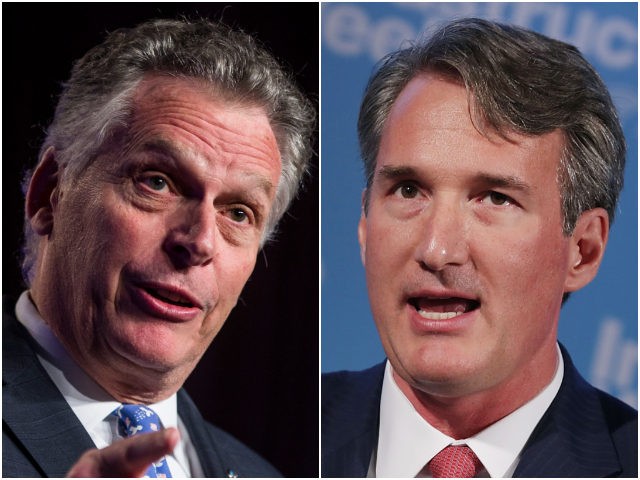The Public Interest Legal Foundation (PILF) filed a lawsuit on behalf of the Virginia Public Policy Institute on Wednesday alleging illegal absentee ballot procedures in Fairfax County, Virginia in the 2020 general election.
The move comes less than two weeks before Election Day in the highly contentious gubernatorial race between former Gov. Terry McAuliffe (D-VA) and Republican nominee Glenn Youngkin.
PILF’s aggressive action to address issues of election integrity in advance of the 2021 Virginia gubernatorial election in a pre-emptive legal strike represents a marked contrast to the after-the-fact election integrity challenges made to the November 2020 general election across the country by Republican organizations and conservative nonprofits.
“Fairfax County is not following the rules for absentee ballots,” PILF President J. Christian Adams said in a statement released on Wednesday.
“These rules exist to protect the right to vote and must always be followed to ensure free and fair elections. Virginians deserve a gubernatorial election that follows the rule of law,” Adams added.
PILF “filed a complaint and motion for an injunction against the Fairfax County General Registrar and three members of the Fairfax County Election Board for violating Virginia election law, the statement noted:
The case is brought on behalf of the Virginia Institute for Public Policy, a local organization that promotes election integrity. The lawsuit explains that Fairfax County is violating Virginia law by accepting and approving applications for absentee and mail-in ballots that do not include the last four digits of the applicant’s Social Security number, as required under Virginia statues.
The requirement to provide the last four digits protects the right to vote. It ensures that nobody loses their right to vote because a ballot has been sent to someone else.
Fairfax County is not only violating Virginia law, but also the Virginia Constitution. The Constitution’s Anti-Suspension Clause requires that laws passed by the Virginia’s legislature are supreme to any act by a local government employee or even the Governor himself. This is important because it restrains election officials in Virginia from disregarding and replacing election administration laws.
PILF asked the Fairfax County Court to “preliminarily and permananently enjoin the Defendants from:”
- continuing to violate the Constitution of Virginia, Virginia Statutes, and any other relevant authorities with respect to absentee and mail-in applicants and ballots.
- sending absentee and mail-in ballots to any applicant who did not follow Virginia law and include the last four digits of his or her Social Security number on the application
- approving additional absentee and mail-in ballot applications that do not comply with Virginia law and include the last four digits of the applicant’s Social Security number and from enrolling applicants who submit such applications
Recent polls indicate the race is too close to call, as McAuliffe’s campaign is struggling with a series of missteps and Youngkin’s campaign is surging, powered in part by parental anger over public education issues.
Given Virginia’s recent electoral history, and the increasing political dominance of the state by Democrat-friendly Northern Virginia, where a high percentage of residents are employed directly or indirectly by the federal government, McAuliffe was considered to be a favorite to win a second non-consecutive term as governor, having defeated Republican nominee Ken Cuccinelli in November 2013 for his first four year term.
Under Virginia law, governors may not serve consecutive terms, but they may serve nonconsecutive terms.
Issues of election integrity–which played so heavily in the contested battleground states of Arizona, Georgia, Wisconsin, Michigan, and Pennsylvania in the 2020 presidential election–have heretofore been less publicly visible in Virginia.
However, with the narrowing race between McAuliffe and Youngkin, the final victor may be determined by which candidate is supported by the best election law attorneys.
The case is Virginia Institute for Public Policy, Inc. v. Konopasek, No. 2021-14420 in the Circuit Court of Fairfax County, Virginia.

COMMENTS
Please let us know if you're having issues with commenting.